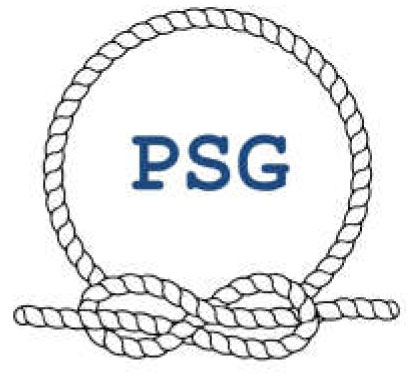We Provide P&I Clubs and Hull & Machinery Insurance
P&I is a special type of marine insurance. It is a liability insurance that a prudent shipowner, manager or charterer needs, particularly if the ship is employed in international trade. P&I insurance covers a shipowner or charterer for liabilities and losses in direct connection with the operation of the ship. We often use the term “third party insurance” to explain P&I.
Hull and Machinery Insurance
Hull and machinery insurance is to protect the ship owner’s investment in the ship. It is a property insurance which covers the ship, the machinery and equipment. The owner will be protected for losses caused by loss of or damage to the ship and its equipment.
Loss of time following damage to the ship is covered under Loss of Hire insurance.
Furthermore, the insurance covers some liabilities, normally collision liability with another ship (known as RDC – “Running Down Clause”) and sometimes also liability for colliding with other objects than another ship (known as FFO – “Fixed and Floating Objects). Very often these liabilities are handled by the owner’s P&I club.
The third part of the insurance is cover for salvage and general average contributions.
Typical hull and machinery claims include:
Check procedures how to handle an emergency – whom to contact
The hull and machinery cover will include a “Trading Warranty”, a clause stipulating where the vessel may trade. This has nothing to do with any trading agreement in any charter party. It is important to check these trading limits as a breach may jeopardize the cover. Lifesaving is normally accepted even if trading limits are breached.
The hull and machinery cover will include a “Trading Warranty”, a clause stipulating where the vessel may trade. This has nothing to do with any trading agreement in any charter party. It is important to check these trading limits as a breach may jeopardize the cover. Lifesaving is normally accepted even if trading limits are breached.
The insurers will pay the ship-owner for the cost of repairs to the ship after the damage has been surveyed and tenders from repair yards submitted. The ship-owner will, however, have an agreed amount referred to as the “deductible” which has to be paid by him before a claim against his insurance policy is submitted. For example, if the deductible is USD 100,000 and a claim for repairs is USD 300,000, the insurers will compensate the owner for USD 200,000.
Hull and machinery cover is often arranged and placed in the insurance market by a professional insurance broker. It is quite common that the insurance cover is spread to many insurers in various countries. The insurers in the hull and machinery market are either companies or syndicates. The company or the syndicate will have an underwriter who signs the policy or the slip produced by the broker for his share of the cover. The biggest single market for marine insurance is Lloyd’s in London. Lloyd’s consists of a number of syndicates writing shares on insurance covers. The company market is dominated by Norway and Scandinavia, but also insurers in USA, France, Italy, Japan and Korea are very active in the marine market.
RELATED COVERS
Without going into too many details, it is worth mentioning a few covers which are quite common:
War Insurance. The Hull and Machinery, and most other marine insurance covers, exclude any loss, damage or liability due to war or warlike situations (i.e. civil commotion, terrorism). The war cover has separate trading limits (called “Listed Areas”) where trading may be restricted or subject to additional premium. Check War Trading Limits!
Loss of Hire Insurance. To protect a loss of a charter hire or freight income many owners elect to purchase a loss of hire cover. Depending on the conditions, the cover may include slow steaming as a result of a physical damage to the ship. The cover may also include time lost due to deviation to a repair yard. Correct and accurate log entries are therefore important in such situations.
Cargo Insurance
The owners of cargo, which is to be transported by sea, usually cover their financial exposure against loss of, or damage to cargo for a declared value. Cargo insurance is provided by the Syndicates at Lloyd’s but more commonly by professional insurance companies around the world. They keep records of their losses and use this information to help them calculate premiums for insurance of certain types of cargo in varying kinds of marine transportation, i.e. in bulk, packaged, containerized, refrigerated, chilled, in tanks etc. The cargo insurer will compensate the owner of the cargo for any loss or damage to the cargo. Thereafter they may claim compensation for their loss from the
carriers of the cargo.
Protection and Indemnity (P&I Club) INSURANCE
Protection and Indemnity insurance, or “P&I” as it is usually called, is a ship owner’s
insurance cover for legal liabilities to third parties. “Third parties” are any person, apart
from the ship-owner himself, who may have a legal or contractual claim against the ship.
P&I insurance is usually arranged by entering the ship in a mutual insurance association,
usually referred to as a “club”. Ship-owners are members of such clubs. Legal liability is
decided in accordance with the laws of the country where an accident takes place. The
P&I insurance cover for contractual liability is agreed at the time the owner requests
insurance cover from the club and is Cargo insurance covers loss or damage to the
goods carried usually in accordance with the owner’s responsibility under crew contracts
or special terms relating to the trading pattern of the vessel.
Risks covered by a P&I Club
Personal injury / illness / death
Personal injury/illness/death
Personal injury: crew liabilities
Pollution
Typical claims arising out of pollution
Cargo damage and shortage
Fines
Stowaways
We can introduce different P&I Clubs to shipowners. From London P&I Clubs to P&I
Clubs based in other countries.
